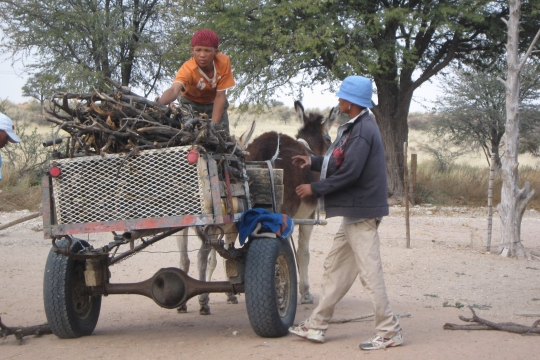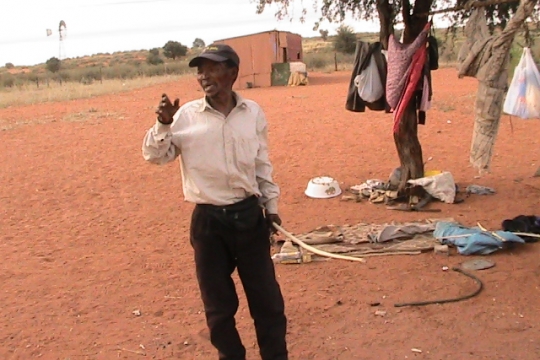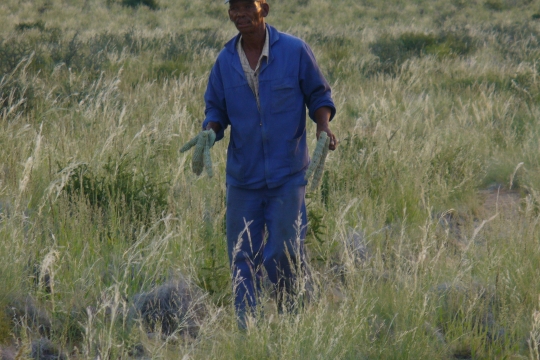South African researchers have, for the first time, calculated what tourists are willing to pay as a way of compensating the San bushmen if they agree to limit their use of natural resources such as firewood and medicinal plants in the Kgalagadi Transfrontier Park.
The park, which straddles the border of South African and Botswana, falls in an area where the Khomani San community have historic rights and in 2002 were awarded sections of the park as part of South Africa’s land restitution programme. This means the San can use the park in order to access bushfood, bushmeat, medicinal plants and firewood.
However, tourists wanting a more pristine wilderness experience in the park have indicated they are willing to pay an additional fee as a way of compensating the San for limiting that use.
‘Our earlier work shows that the Khomani San are willing to be bought out of certain optional uses of natural resources, such as firewood and grazing, in favour of electricity and modern livestock feed,’ explains Dr Johane Dikgang, from the Department of Economics and Econometrics at University of Johannesburg.
‘We were also able to calculate that the San assigned a value of R139.24 for those resources, at 2012 prices.’
Now Dikgang’s latest study, done in collaboration with the Environmental Policy Research Unit’s (EPRU’s) Prof Edwin Muchapondwa from the University of Cape Town, shows how tourists are prepared to come to the party.
‘After questioning 104 visitors on the South African side of the park, in order to test their attitudes towards increased fees to compensate the San for certain resource restrictions, we calculated that they were prepared to pay an addition R76.96 to R177.08 per trip, on top of the existing park entry fee,’ says Dikgang.
Although the interview process showed that most tourists felt it was the government’s role to compensate the San, rather than tourists’ responsibility.
These findings were written up for the Journal of Environmental Economics and Policy in May 2014.


